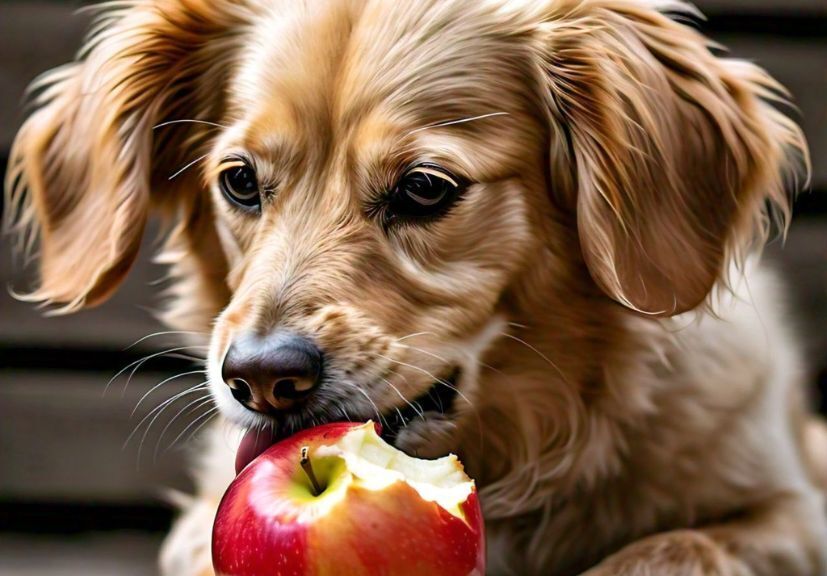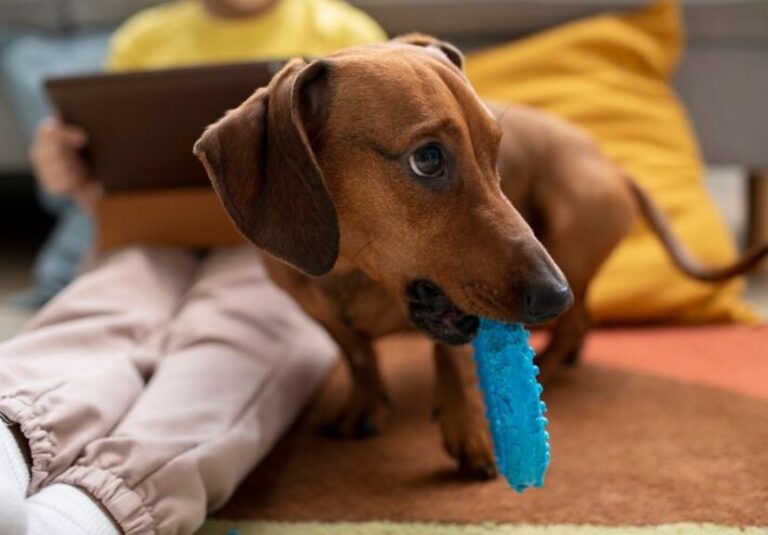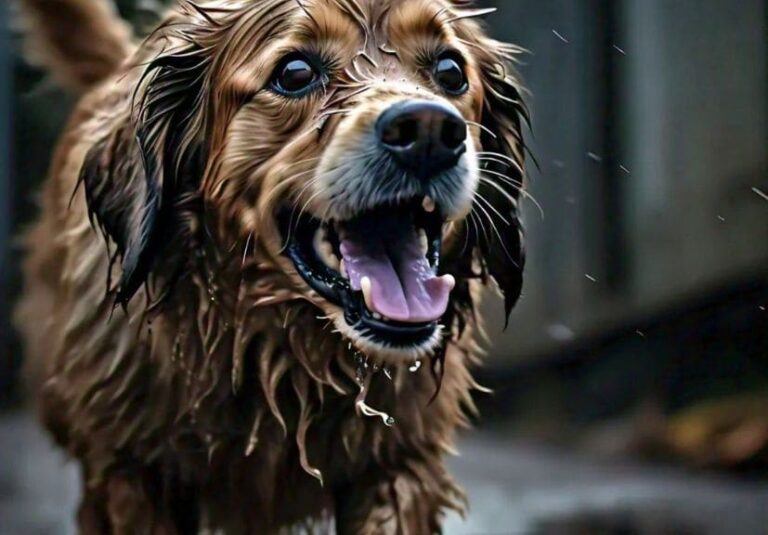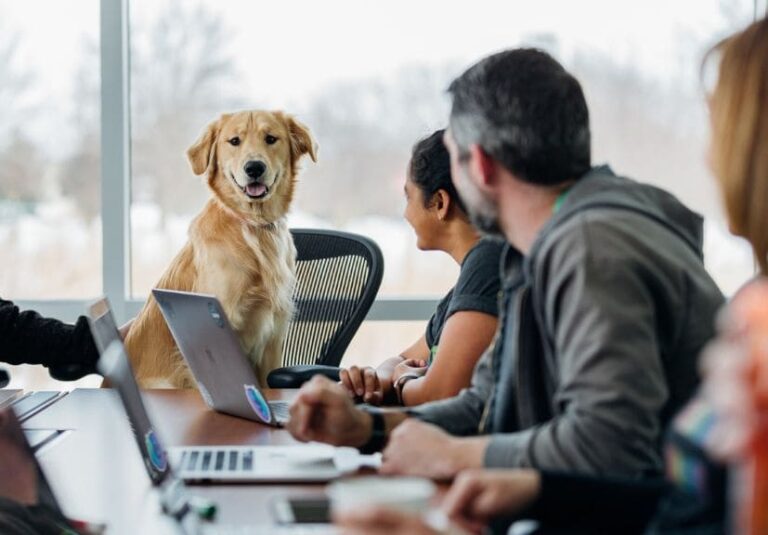Nutritional Benefits of Apples for Dogs
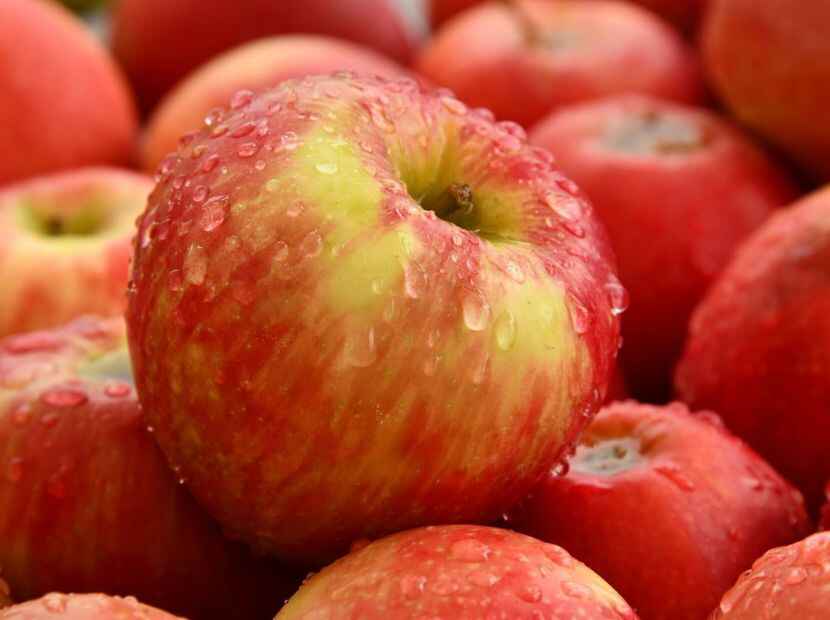
Apples are not only delicious but also offer a wealth of nutritional benefits. Rich in vitamins, minerals, and fiber, apples can be a great occasional snack for your dog. The benefits of apples for dogs include:
- Vitamin C: Helps boost the immune system and aids in cell repair.
- Vitamin A: Supports vision, skin, and coat health.
- Fiber: Promotes healthy digestion, which can be especially beneficial for dogs with digestive issues.
In addition, apples are 85% water, making them a hydrating snack that can be refreshing for dogs, especially on warm days. Despite these benefits, it’s crucial to know that not all parts of the apple are safe for dogs to consume.
How Many Apples Can Dogs Eat?
While apples are nutritious, they should only be fed to dogs in moderation. As with any treatment, too much can cause digestive issues, including diarrhea and an upset stomach. Generally, dogs should only have 1-2 apple slices at a time. A single slice or even half a slice may be sufficient for small dogs, while larger dogs can tolerate more. Remember that apples are high in sugar, so overfeeding can contribute to weight gain and dental problems. Start with small portions to see how your dog’s digestive system handles the fruit.
Which Parts of an Apple Are Safe for Dogs?
Can dogs eat apples? Yes, apples are generally safe for dogs to eat, but there are some important things to keep in mind. While the apple flesh is nutritious and safe, the core, seeds, and sometimes the peel can pose risks. To ensure your dog’s safety, it’s best to offer them only the peeled apple flesh in small quantities.
Apple Flesh: A Healthy Snack
The apple’s flesh is your dog’s safest and most nutritious part. It’s low in fat and packed with vitamins. You can offer your dog bite-sized pieces of apple flesh as a treat. Just monitor how much you’re giving them, and avoid overfeeding.
Apple Peel: Safe but with Caution
Are apple peels good for dogs? Yes, apple peels are safe for most dogs and provide additional fiber. However, some dogs may find apple peels difficult to digest, leading to stomach discomfort. If your dog has a sensitive stomach, you may want to peel the apple before giving it to them.
Apple Core and Seeds: A No-Go
The apple core and seeds are where the danger lies. Apple seeds contain amygdalin, a substance that releases cyanide when digested. Even though it would take a lot of seeds to cause cyanide poisoning in larger dogs, it’s best to avoid giving them any seeds at all. Can dogs eat apple seeds? No, because they pose a potential toxicity risk.
The apple core is tough and can pose a choking hazard or cause intestinal blockage, especially for smaller dogs. So always remove the core before sharing apple slices with your dog.
How to Safely Prepare Apples for Dogs?
If you want to share apples with your dog, it’s important to prepare them safely. Follow these steps:
- Wash the Apple: Thoroughly wash the apple to remove any pesticides or chemicals on the skin. Opt for organic apples, which are less likely to have harmful residues,
- Remove the Core and Seeds: Apple cores are tough to chew and digest, and seeds are toxic. Always remove these parts before feeding your dog any apples.
- Cut the Apple into Bite-Sized Pieces: To prevent choking, especially in smaller dogs, slice the apple into small, manageable pieces. Large chunks can be difficult for dogs to chew, increasing the risk of choking.
- Serve in Moderation: While apples are healthy, too much can upset your dog’s stomach. Stick to small portions and avoid overfeeding.
For a fun treat, mix apple slices with peanut butter (ensure it’s free from xylitol, which is toxic to dogs) or freeze apple chunks for a cool summer snack.
Can Apples Cause Diarrhea in Dogs?
Yes, apples can cause diarrhea in dogs if they consume too much. The fiber in apples, while generally beneficial, can lead to digestive upset when eaten in excess. Dogs are prone to too many medical conditions connected with their diet. When we ask “Can apples cause diarrhea in dogs?” Yes, particularly if your dog isn’t accustomed to high-fiber foods. Always start with small portions to see how your dog reacts, and avoid overfeeding to prevent digestive issues like diarrhea.
What About Applesauce for Dogs?
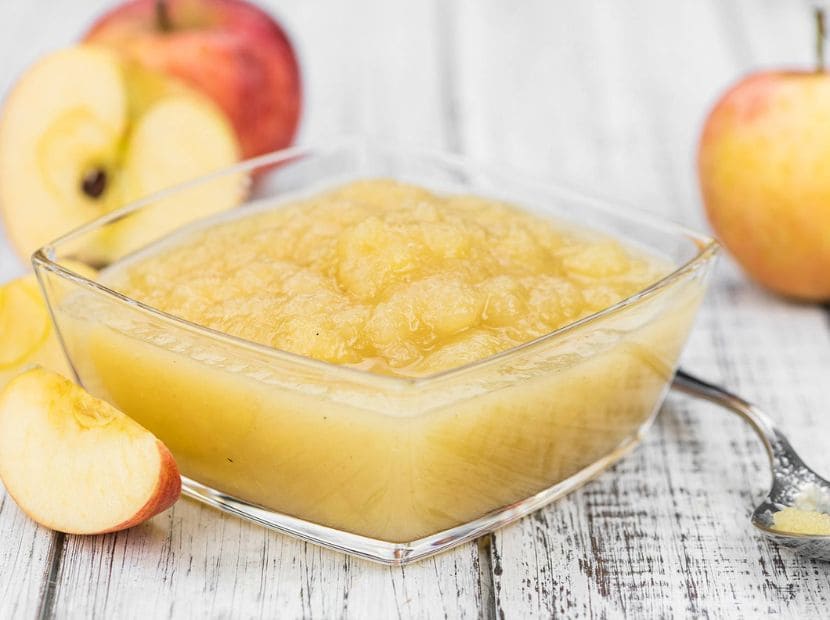
Many dog owners ask if applesauce is a good option for their pets. Is applesauce good for dogs? Yes, but only if it’s plain and unsweetened. Commercial applesauce often contains added sugars, leading to weight gain and dental problems in dogs. Some varieties even contain artificial sweeteners, like xylitol, which is highly toxic to dogs.
When offering applesauce to your dog, ensure it’s free from added sugars and other harmful ingredients. If possible, opt for homemade applesauce so you have full control over the ingredients. Can dogs eat Mott applesauce? Only if it’s the unsweetened version, as the regular variety contains too much sugar.
Can Dogs Have Apple Juice?
Can dogs have apple juice? Generally, apple juice is not recommended for dogs. Store-bought apple juice contains high levels of sugar, which can contribute to obesity, diabetes, and dental issues. Can a dog drink apple juice? Avoiding it altogether and offering fresh apple slices for a healthy treat instead is better.
Can Dogs Eat Apple Pie?
Can dogs eat apple pie? It’s best to avoid giving your dog apple pie. While apples are safe, apple pie often contains sugar, butter, and spices, including nutmeg, which can harm dogs. If your dog ate apple pie, monitor them closely for signs of stomach upset or discomfort.
Apple Butter: Is It Safe for Dogs?
Can dogs have apple butter? No, apple butter is not safe for dogs. Like apple pie, apple butter contains high amounts of sugar and spices, which can harm dogs. The sugar alone can contribute to obesity and diabetes over time, so it’s best to keep apple butter out of your dog’s diet.
Other Apple-Based Foods: What’s Safe and What’s Not!
Apples are a great treat for dogs, but not all apple-based foods are safe. Here’s a quick guide to which ones your furry friend can enjoy and which ones to avoid.
Honeycrisp Apples
Can dogs eat Honeycrisp apples? Yes, as long as the seeds and core are removed, Honeycrisp apples are a safe and delicious snack for your dog.
Gala Apples
Can dogs eat Gala apples? Yes, Gala apples are also safe for dogs, provided you remove the seeds and core.
Fuji Apples
Can dogs eat Fuji apples? Absolutely. Fuji apples are safe, but remove the core and seeds before feeding them to your dog.
Conclusion: Apples as a Safe Treat for Dogs
In conclusion, when served correctly, apples can be a healthy, refreshing treat for your dog. The flesh and peel are safe, but always remove the core and seeds, as they pose serious risks. Stick to small portions to avoid digestive upset, and consider offering plain, unsweetened applesauce as an alternative. With these precautions in mind, you can safely share the many benefits of apples for dogs with your furry friend.
Common FAQs About Dogs and Apples
Can Dogs Eat Apple Pie?
No, apple pie is not safe for dogs. While the apples themselves may be fine, the added sugars, butter, and spices in apple pie can cause digestive issues for your dog. Can dogs have apple pie? It’s best to avoid it to prevent any potential health risks.
What are toxic dog foods?
While most human foods are safe for dogs in moderation, some can be toxic and even life-threatening. Here’s a list of 5 common foods that you should never feed your dog:
- Xylitol: This artificial sweetener is found in many sugar-free products, including gum, candy, and baked goods. Xylitol can cause liver failure in dogs, even in small amounts.
- Grapes and Raisins: These fruits are toxic to dogs for unknown reasons. Ingestion can lead to kidney failure.
- Chocolate: Theobromine, a compound found in chocolate, is toxic to dogs. Dark chocolate is the most toxic, followed by milk chocolate and white chocolate.
- Onions and Garlic: These vegetables contain sulfur compounds that can damage red blood cells in dogs, leading to anemia.
- Alcohol: Alcohol can be fatal to dogs, even in small amounts.
Can Dogs Eat Apple Seeds?
No, apple seeds are toxic to dogs. They contain amygdalin, which releases cyanide when digested. Always remove the seeds before giving your dog apple slices.
How to Safely Prepare Apples for Dogs?
When preparing apples for dogs, always wash the apple thoroughly, remove the seeds and core, and cut the apple into small pieces. Avoid giving your dog large apple chunks, posing a choking hazard. Stick to small portions to ensure your dog doesn’t overconsume and experience stomach upset.

